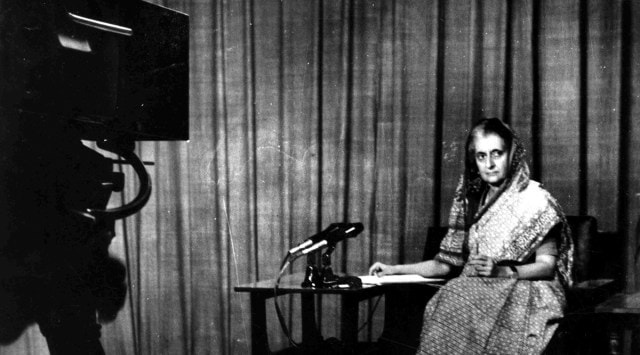As students from Classes 6 to 12 return to school this week for the new academic session, they will find new social science textbooks on their desks with the most sweeping changes since the NDA government took charge in 2014.

The Indian Express had first reported these changes in a three-part series carried from June 18 to 20 last year.
Although the NCERT had released a comprehensive list of all tweaks and deletions in the textbooks last year, it could not introduce these changes as the academic session had started. Reprinted books with rationalised content hit the market only recently, just in time for the 2023-24 academic year.
Some of the key changes carried out in the textbooks:
* Content on the Mughal era and Muslim rulers of India has suffered deep cuts. Several pages on the Delhi Sultanate, ruled by many dynasties including the Mamluks, Tughlaqs, Khaljis and Lodis, and the Mughal empire have been removed from the Class 7 history textbook Our Pasts – II.
* The chapter The Mughal Empire in the Class 7 textbook, too, has suffered cuts, including a two-page table detailing milestones and achievements of Mughal emperors such as Humayun, Shah Jahan, Babur, Akbar, Jahangir and Aurangzeb.
* In the Class 12 history textbook, the chapter Kings and Chronicles: The Mughal Courts (Themes in Indian History — Part II) has been deleted. The chapter dealt with Mughal-era manuscripts like Akbar Nama and Badshah Nama and how these chronicle the history of Mughals through battles, hunting expeditions, building constructions and court scenes.
Story continues below this ad
* In the Class 7 history textbook Our Past – II, a reference in the second chapter to Mahmud Ghazni of Afghanistan, who invaded the subcontinent and raided Somnath temple, has been tweaked. First, the title “Sultan” has been dropped from his name. Second, the sentence “he raided the subcontinent almost every year” has been revised to “he raided the subcontinent 17 times (1000-1025 CE) with a religious motive”.
* Passages that dealt with Emergency’s draconian impact have been pruned. For instance, the chapter on Emergency in Class 12 political science textbook Politics in India Since Independence has been reduced by five pages. The deleted content in the chapter titled The Crisis of Democratic Order pertains to controversies surrounding the decision to impose Emergency and the abuse of power and malpractices committed by the Indira Gandhi government during that time. It lists excesses such as the arrest of political workers, restrictions on the media, torture and custodial deaths and forced sterilisations.
* Three chapters detailing protests that turned into social movements in contemporary India have been dropped from political science textbooks across Classes 6 to 12. For instance, a chapter on the “rise of popular movements” has been dropped from the Class 12 textbook Politics in India Since Independence.
* The section on varnas in the Class 6 history textbook (Our Past – I) is reduced by half. Sentences on the hereditary nature of varnas, classification of people as untouchables and rejection of the varna system have been removed from the chapter Kingdom, Kings and an Early Republic.
Story continues below this ad
* All references to 2002 Gujarat riots have been dropped from all NCERT social science textbooks. For instance, two pages on the riots in the last chapter of the current Class 12 political science textbook titled Politics in India Since Independence have been deleted. The first page carries a paragraph on the chronology of events — the train full of karsevaks set on fire followed by violence against Muslims — and refers to the National Human Rights Commission’s criticism of the Gujarat government for failing to control the violence. The deleted passage states: “Instances, like in Gujarat, alert us to the dangers involved in using religious sentiments for political purposes. This poses a threat to democratic politics.”
The second page (now deleted) carries a collage of three newspaper reports along with an excerpt of NHRC’s observation from its Annual Report of 2001-2002 on the Gujarat government’s handling of the riots. Former PM Atal Bihari Vajpayee’s famous “raj dharma” remark in this section has also been removed. “My one message to the CM is that he should follow ‘raj dharma’. A ruler should not make any discrimination between his subjects on the basis of caste, creed and religion,” Vajpayee had said at a press conference in Ahmedabad in March 2002 with Narendra Modi, the then Gujarat CM, sitting by his side.
This is the third textbook review since 2014. The first one took place in 2017, in which the NCERT made 1,334 changes, including additions, corrections and data updates, in 182 textbooks. The second review was initiated in 2019 at the then Education Minister Prakash Javadekar’s behest to reduce the burden on students.

































